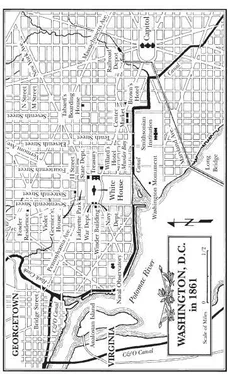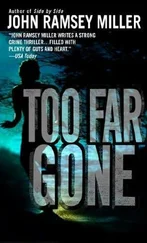John Miller - The First Assassin
Здесь есть возможность читать онлайн «John Miller - The First Assassin» весь текст электронной книги совершенно бесплатно (целиком полную версию без сокращений). В некоторых случаях можно слушать аудио, скачать через торрент в формате fb2 и присутствует краткое содержание. Жанр: Исторический детектив, на английском языке. Описание произведения, (предисловие) а так же отзывы посетителей доступны на портале библиотеки ЛибКат.
- Название:The First Assassin
- Автор:
- Жанр:
- Год:неизвестен
- ISBN:нет данных
- Рейтинг книги:3 / 5. Голосов: 1
-
Избранное:Добавить в избранное
- Отзывы:
-
Ваша оценка:
- 60
- 1
- 2
- 3
- 4
- 5
The First Assassin: краткое содержание, описание и аннотация
Предлагаем к чтению аннотацию, описание, краткое содержание или предисловие (зависит от того, что написал сам автор книги «The First Assassin»). Если вы не нашли необходимую информацию о книге — напишите в комментариях, мы постараемся отыскать её.
The First Assassin — читать онлайн бесплатно полную книгу (весь текст) целиком
Ниже представлен текст книги, разбитый по страницам. Система сохранения места последней прочитанной страницы, позволяет с удобством читать онлайн бесплатно книгу «The First Assassin», без необходимости каждый раз заново искать на чём Вы остановились. Поставьте закладку, и сможете в любой момент перейти на страницу, на которой закончили чтение.
Интервал:
Закладка:
They passed through a doorway and almost immediately were in the Capitol’s rotunda, which was open to the sky. A massive wooden scaffolding rose from the center of the room, reaching toward the hole where the dome was supposed to rest. More than a hundred feet above his head, Rook could see a few men clinging to the planks and moving a giant crane. They were continuing the slow work of construction. President Lincoln had insisted that their efforts not stop, because they held symbolic importance to a divided nation.
As Rook gazed at the scene overhead, he saw one of the workers move off the scaffolding, grab a rope attached to a cornice, and lower himself to the ground in a matter of seconds. To the colonel, it was an incredible feat of acrobatics. He had seen it before, but it still impressed him. Others in the room had become used to it. Just a few feet from where the fellow had landed, a group of soldiers did not even look up from their card game. Elsewhere, men occupied themselves by reading and napping.
Rook studied the scene for a moment but did not see Davis or Stephens immediately. “There they are,” whispered Clark. “On the far side of the scaffolding.”
Davis was running his hand along a thick beam supporting the crane. He pointed upward and said something to Stephens. It appeared as if they were thinking about climbing the steps that spiraled up the middle of the scaffold. Then Davis shook his head. The Southerners studied the rotunda for a few more minutes. Rook tried to stay out of view. Then he realized they were not looking at people. They were examining the room itself. When they were done, they exited through an opening on Rook’s left, which led toward the House of Representatives, on the south side of the building.
Rook did not want to follow them too closely, so he stood still for a moment and then moved cautiously toward the passageway with Clark. When they got there, Rook stood to one side, gestured for Clark to stay back, and peered down a long corridor. Soldiers were hammering wooden boards into place along both sides of the hall, apparently to protect the statues that lined it. Rook could see all the way to the House doors, but Davis and Stephens were nowhere in sight. Could they have gone so far in so little time?
Before Rook had a chance to wonder where they went, he heard the patter of footsteps on his right. In his haste, he had overlooked a small doorway that led to a curving staircase. Davis and Stephens must have used it. But had they gone up or down? He could not tell. He supposed it was even possible that they had separated. Rook knew from previous visits to the Capitol that up led to congressional offices and down led to the basement. He went up and ordered Clark down.
Compared to the grand space of the rotunda and the long hallway to the House of Representatives, the staircase was cramped. Rook could see only a dozen or so steps in each direction before they curved out of view. He climbed cautiously, not wanting to bump into Davis and Stephens. He also treaded lightly, not wanting to make a sound.
The staircase led to new opening, where a private stood at attention. He was the first soldier Rook had seen that day in the Capitol who actually appeared to be on duty. He could not have been a day older than twenty years.
“Excuse me,” said Rook, “did a couple of men come this way just now?”
“No, sir,” said the soldier. “It’s been quiet up here for a while.”
Rook offered a swift word of thanks, turned around, and descended the winding staircase. A moment later, he was with Clark in the Capitol basement. A long hallway stretched to the right. On their left, a large room occupied the space directly below the rotunda. It was full of thick support columns. The light was poor. They heard someone talking in a part of the room they could not see.
“…and they’re planning to build a set of bakery ovens over here.”
Rook recognized the voice of Lieutenant Easley, a man assigned as a liaison to the troops housed in the Capitol. He knew that Easley was working with architects to find suitable places for building ovens that would serve the troops. Rook was about to step forward and ask Easley if he had seen anyone pass when a deep Southern accent stopped him cold.
“So your deliveries will come in over here?”
Easley, still out of sight, answered that they would and added that they were going to stockpile flour in a warren of rooms nearby. It sounded as if he were giving Davis and Stephens a guided tour of the basement. Sometimes Rook could hear what they were saying; other times their words fell out of earshot. This went on for several minutes. Then came silence. Either they had left the room or the conversation had ended. Rook was about to step forward when Easley, heading straight for the staircase, nearly bumped into him.
“Pardon me,” said Easley.
“Good afternoon, Lieutenant.”
Easley looked up. “Colonel Rook? Is this an inspection? You’re not in uniform.”
Rook would have preferred not to encounter Easley at all. He wondered if he could bluff his way through a conversation.
“Why, yes, that’s exactly right. When I’m dressed up, sometimes I worry that I’m not seeing things as they truly are-you know, everybody standing at attention and acting as they think they should rather than as they usually do.”
“Very clever, sir,” said Easley as he straightened his spine.
“Who were those men you were just with?” asked Rook.
“They are traders. I found them walking around the basement. They looked lost. People don’t come down here much, except for soldiers. When I asked if they needed help, one of them asked a bunch of questions about selling flour and produce to the troops.”
“They asked about food?”
“Yes. They wanted to know how much the soldiers would need, who would pay for it, where they might deliver it. They aren’t inspecting things with you, are they, sir? I answered their questions as best as I could, which probably wasn’t very well.”
“Oh no, they’re not with us. Don’t worry about that.”
Rook asked Easley to show him where the men went. The lieutenant led him through the big room beneath the rotunda, around one of its thick columns, and pointed toward a portal on the left-hand side. “They went that way, to the west front of the building. They can’t be more than a couple of minutes ahead of you.”
“Thank you very much, Lieutenant. You may be on your way.”
As Easley left, Rook opened the doors and looked out. Trees dotted the landscape between the Capitol and the other buildings of Washington. Their branches were just starting to bud. Several hundred feet in front of them, walking straight toward the Avenue, were Davis and Stephens.
“Do you really think they’re traders?” asked Clark.
“They’re either traders or traitors,” said Rook.
Rook and Clark continued their pursuit. They stayed far behind Davis and Stephens, but always in sight. When they reached the Avenue, they picked up their pace slightly, remaining a couple of blocks behind the two men. Rook expected Davis and Stephens to return to Brown’s, ending their jaunt from where it had started. But when they reached Sixth Street, they kept walking. They had somewhere else to go.
As they marched up the Avenue, crossing street after street, Rook and Clark closed the gap. By the time they reached Willard’s, at Fourteenth Street, they were just half a block behind the two men. At Fifteenth Street, however, the massive Treasury Department prevented them from continuing in a straight line. They turned right and slipped out of sight.
When Rook and Clark reached the corner, Clark glanced backward for a quick view of the Capitol, more than a mile away. For a moment, he imagined what the scene would look like when the dome was finally finished and Pennsylvania Avenue properly paved. It would present a grand vista for the nation-a commercial street framing the country’s chief political building.
Читать дальшеИнтервал:
Закладка:
Похожие книги на «The First Assassin»
Представляем Вашему вниманию похожие книги на «The First Assassin» списком для выбора. Мы отобрали схожую по названию и смыслу литературу в надежде предоставить читателям больше вариантов отыскать новые, интересные, ещё непрочитанные произведения.
Обсуждение, отзывы о книге «The First Assassin» и просто собственные мнения читателей. Оставьте ваши комментарии, напишите, что Вы думаете о произведении, его смысле или главных героях. Укажите что конкретно понравилось, а что нет, и почему Вы так считаете.












